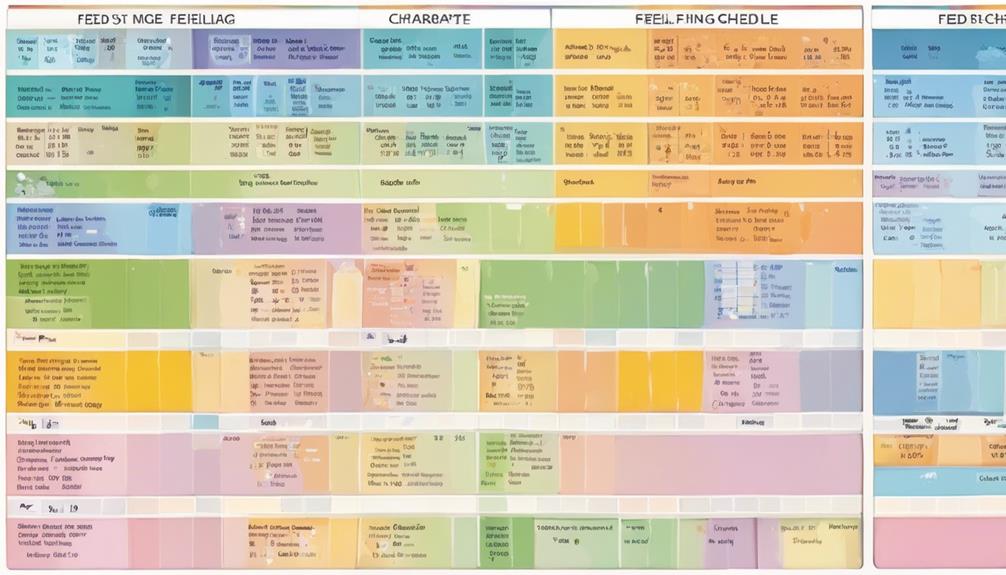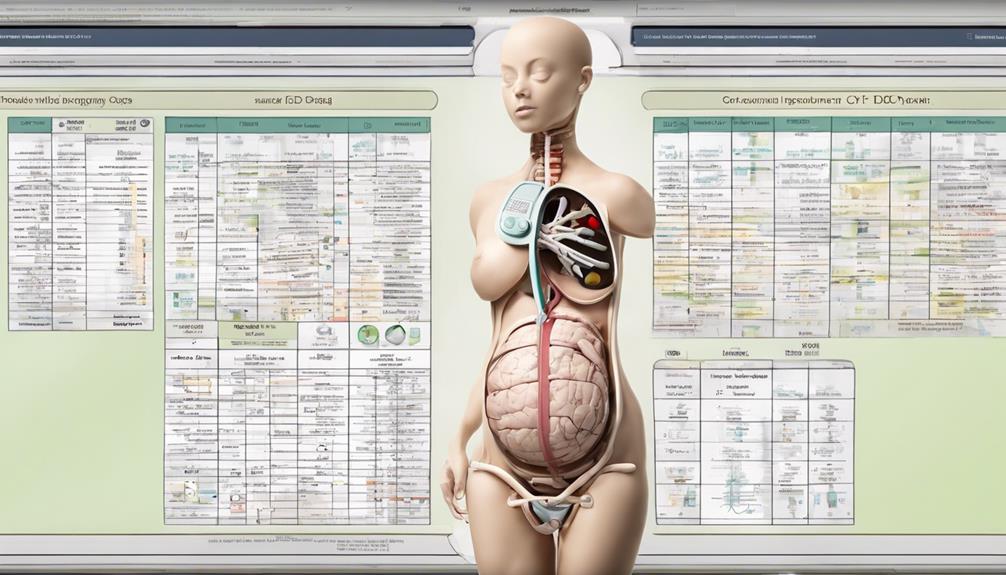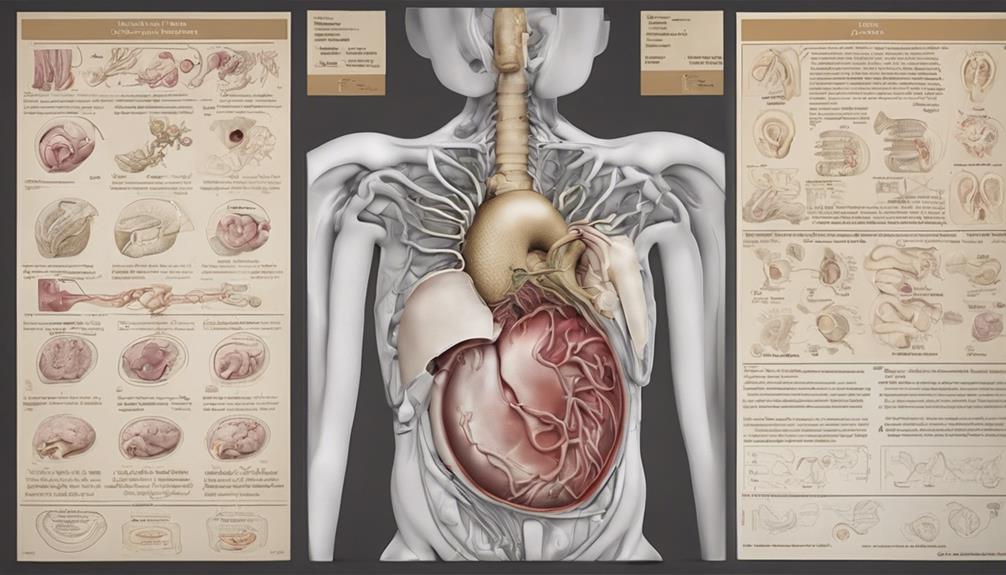Want to learn how to handle bloating in your first trimester? Are you experiencing discomfort and looking for relief?
In this guide, we explore practical strategies to help manage bloating during early pregnancy. From dietary adjustments to natural remedies and expert advice, we'll navigate through effective ways to diminish bloating and guarantee a more comfortable journey.
So, if you're seeking ways to ease this common pregnancy woe, stay tuned for valuable insights to support your well-being.
Key Takeaways
- Include fiber-rich foods and hydrate well
- Opt for smaller, frequent meals to aid digestion
- Engage in gentle exercises like walking or yoga
- Consult healthcare provider for personalized advice
Causes of First Trimester Bloating
During the first trimester of pregnancy, the causes of bloating primarily stem from hormonal changes and physical adjustments in the body. Progesterone, a key hormone during pregnancy, rises notably in the first trimester. This increase leads to the relaxation of digestive muscles and slows down the overall digestion process, which can result in bloating.
Additionally, other hormonal fluctuations, such as elevated levels of hCG, also play a role in contributing to bloating by slowing the emptying of the stomach and impacting digestive functions. The expanding uterus further compounds the issue by exerting pressure on the stomach and intestines, exacerbating bloating symptoms.
Significantly, experiencing bloating in the first trimester of pregnancy is incredibly common due to this combination of hormonal changes and physical transformations occurring in the body. Bloating can begin as early as 1-2 weeks into pregnancy and tends to be particularly noticeable during the first trimester due to these hormonal and physical factors.
Dietary Tips for Bloating Relief

For relief from bloating in the first trimester, consider incorporating fiber-rich foods like fruits, vegetables, and whole grains into your diet. These foods aid digestion and can help reduce bloating during pregnancy.
It's also essential to limit gas-producing foods such as beans, broccoli, and carbonated drinks to minimize bloating symptoms. Staying hydrated by drinking plenty of water throughout the day can prevent constipation, which is a common cause of bloating in early pregnancy.
Opting for smaller, frequent meals rather than large ones can ease the digestive process and lower the likelihood of bloating. Keeping a food journal to track your intake is a useful strategy to identify specific foods that may trigger bloating during the first trimester.
Lifestyle Changes to Reduce Bloating
To reduce bloating during the first trimester, it's beneficial to incorporate gentle exercises like walking or prenatal yoga into your routine. These activities can help promote healthy digestion, easing abdominal bloating often experienced as one of the early pregnancy symptoms. Staying hydrated by drinking plenty of water is important to prevent constipation, a common culprit for bloating in early pregnancy.
Opting for smaller meals throughout the day rather than large portions can aid digestion and reduce the likelihood of excessive bloating. It's also advisable to avoid carbonated drinks and gas-inducing foods that can contribute to bloating and discomfort. Additionally, choosing loose, comfortable clothing can help reduce abdominal pressure, providing relief from bloating symptoms.
Natural Remedies for Bloating

Implementing natural remedies can effectively alleviate bloating discomfort experienced in the first trimester of pregnancy. Here are some key strategies to help manage bloating naturally:
| Natural Remedies | Benefits |
|---|---|
| Probiotics | Rebalance gut bacteria to reduce bloating discomfort. |
| Smaller meals | Aid digestion and prevent bloating by consuming frequent, smaller meals. |
| Water consumption | Stay hydrated, prevent constipation, and reduce bloating discomfort. |
| Physical activity | Support digestion and alleviate bloating, such as through regular walks. |
| Gas-inducing foods | Avoid these to manage bloating symptoms during the first trimester. |
| Artificial sweeteners | Skip these to help prevent bloating discomfort in early pregnancy. |
Consulting Your Healthcare Provider
When seeking guidance on managing bloating discomfort during pregnancy, consulting your healthcare provider early on is essential. Your healthcare provider can assess your symptoms, discuss potential causes of bloating such as pregnancy hormones affecting your digestive tract, and offer personalized advice.
It's important to share details about your diet, including the number of meals a day, to help identify triggers and prevent bloating. Drinking plenty of water and consuming fiber-rich foods like whole grains can help keep things moving in your digestive system and reduce abdominal discomfort.
Prepare for your appointment by keeping a journal of your bloating episodes, noting the severity and any patterns you observe. Your healthcare provider may recommend dietary changes, lifestyle adjustments, or further evaluation to address your bloating concerns effectively. By collaborating with your healthcare provider and following their recommendations, you can better manage bloating during your first trimester.
Can Gas-X Help with Bloating During the First Trimester of Pregnancy?
Yes, Gas-X can be a helpful option for managing gas while pregnant, particularly during the first trimester when bloating and gas can be a common discomfort. However, it’s essential to consult with a healthcare professional before taking any medication during pregnancy to ensure it is safe for both the mother and the baby.
Conclusion
To wrap things up, bloating in the first trimester can feel like an unwelcome guest at the pregnancy party. But fear not, with a little humor and a lot of patience, you can show bloating the door.
Remember, it's just a temporary bump in the road (pun intended). So keep calm, sip some peppermint tea, and embrace the journey with a touch of sarcasm and a whole lot of grace.
You've got this, mama!










